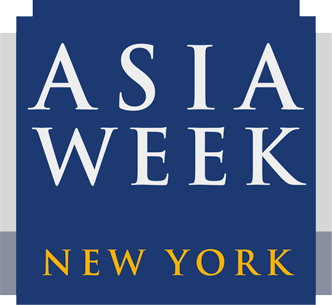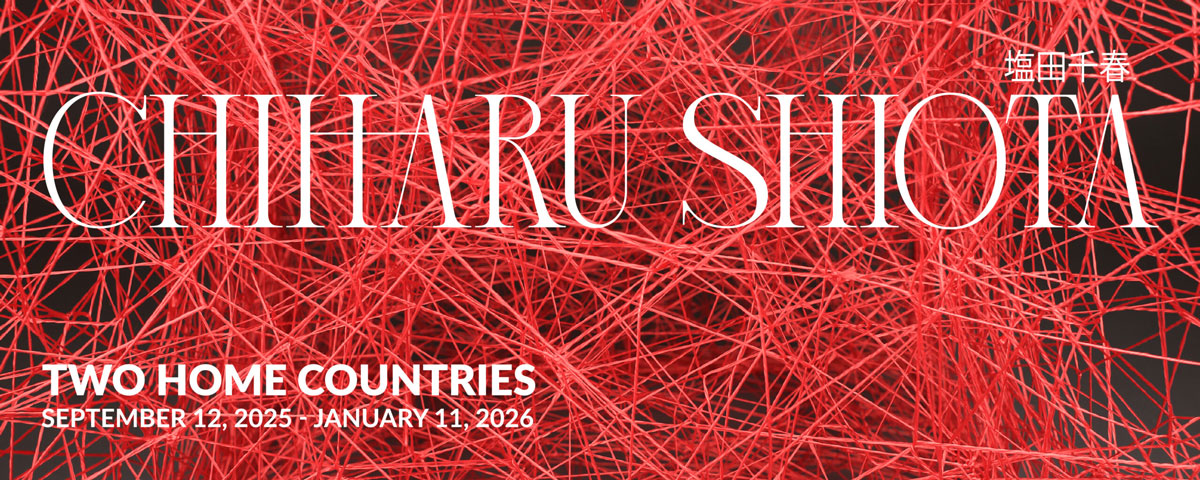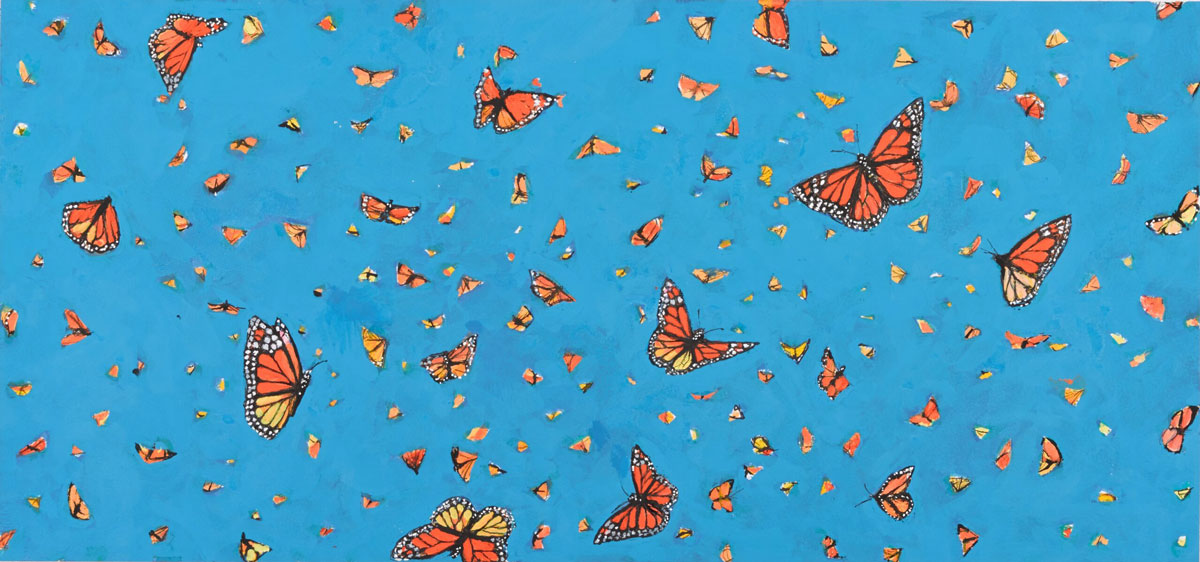UPCOMING FALL EXHIBITION
Chiharu Shiota: Two Home Countries
September 12, 2025 – January 11, 2026
Opening Reception: September 11 at 9pm (Members Only)
Special closure: closed Tuesday, September 23rd–Sunday, September 28th, 2025 due to restricted access during the United Nations General Assembly. Exhibition reopens on Tuesday, September 30th, 2025.
We are pleased to present the first New York solo museum exhibition of contemporary artist Chiharu Shiota (b. 1972). Commemorating the 80th anniversary of the end of World War II, Chiharu Shiota: Two Home Countries centers on a newly commissioned, site-specific installation that explores wartime experiences and memories. Placing the original installation in dialogue with other works from Shiota’s oeuvre, the exhibition creates parallels between the humanitarian tragedy of war and the artist’s personal struggles, including confronting her mortality and her bicultural identity living between two home countries. By drawing connections between collective and personal experience and memory, the exhibition contemplates universal issues such as history, humanity, loss, time, space, the body, and national identity.
The exhibition also documents the conceptualization and creative process behind Shiota’s stage set designed for Japan Society’s theater commission KINKAKUJI (Temple of the Golden Pavilion), which will premiere on the opening night of the exhibition. Based on the novel by legendary Japanese author Yukio Mishima (1925–1970), the performance celebrates the centennial year of his birth. This new work brings Shiota’s innovative and deeply intimate stage design to American audiences for the first time.
To learn more, click here.
RECENT SUMMER EXHIBITION
Susumu Shingu: Elated!
June 20 – August 10, 2025
We are excited to relaunch our summer exhibition series with a solo exhibition of the acclaimed sculptor Susumu Shingu (b. 1937). Susumu Shingu: Elated!, marks the artist’s first solo museum exhibition in New York City and features his mesmerizing sculptures that make visible the invisible forces of wind, heat, and gravity, while encouraging a heightened awareness of the natural environment.
Since the 1960s, Susumu Shingu (b. 1937) has designed and engineered kinetic artworks that enliven parks, plazas, and public spaces around the globe. His traveling outdoor exhibition Windcircus completed a U.S. tour in 1988, visiting sites in New York; Fall River, Massachusetts; Chicago; Boston; and Los Angeles. Since 1989, his collaborations with Italian architect Renzo Piano (b. 1937), including Boundless Sky (1994) suspended in Kansai International Airport terminal building, have become world renowned. Shingu has also created several site-specific, monumental sculptures permanently installed in New York City: Dialog with the Sun (1995), Distant Sky (2012) and Rainbow Leaves (2021).
To learn more, click here.
RECENT ASIA WEEK NEW YORK 2025 EXHIBITION

School of Kano Motonobu, Phoenix and Peacock in a Landscape, Muromachi period (1392-1573), 16th century. Right screen from a pair of six-panel screens; ink, color, and brushed gold on paper. The Metropolitan Museum of Art, New York, Promised Gift of Rosemarie Longhi, in memory of Leighton Longhi
Kotobuki: Auspicious Celebrations of Japanese Art from New York Private Collections
March 13 – May 11, 2025
Members-only Opening Reception: Wednesday, March 12 at 6:30pm (free; RSVP required)
JASA Annual Meeting and Lecture: Friday, March 14 at 5pm (ticketed; RSVP required)
Members-only Tea & Tour of Kotobuki: Thursday, May 8 at 4pm (free; RSVP required)
Explore the auspicious theme of kotobuki, or “celebration,” through an inspired selection of paintings, calligraphy, surimono, textiles, ceramics, and baskets dating from the 12th-21st centuries. Curated by Dr. Miyeko Murase, Takeo and Itsuko Atsumi Professor Emerita of Japanese Art History at Columbia University, this joyful exhibition offers a unique opportunity to view important but rarely displayed works from significant private collections in the New York City area.
We cordially invite our members to join us for the opening reception of this extraordinary showcase, curated by the esteemed Dr. Miyeko Murase, Takeo and Itsuko Atsumi Professor Emerita of Japanese Art History at Columbia University. We look forward to an evening of enriching conversations and connections as we come together to celebrate the beauty and significance of Japanese art and culture. This event is free for members, RSVP required.
We also invite you to join JASA Members for the 2025 Annual Meeting and a special lecture presented by Matthew McKelway, Takeo and Itsuko Atsumi Professor of Japanese Art History, Art History & Archaeology, Columbia University. Highlighting works included this exhibition, the lecture will explore the theme of bird-and-flower painting from the perspectives of East Asian diplomacy and commerce during the century of Japan’s first encounters with Europe and the New World. This event is ticketed and free for members, RSVP is required.
During the final week of the exhibit, we invite our members to join us for a quiet afternoon tea on Thursday, May 8 as Dr. Michele Bambling, Senior Director, Japan Society Gallery, provides an exclusive private tour to appreciate these celebratory masterworks with her illuminating commentary. Share in the festivities with fellow art enthusiasts over tea and light refreshments. This event is free for members, RSVP required.
To learn more, click here.



